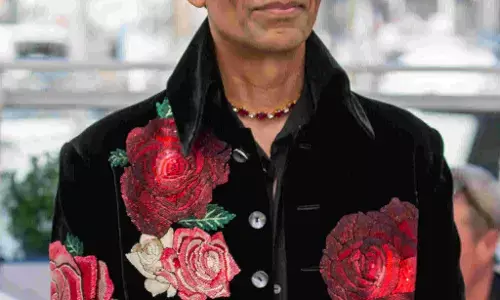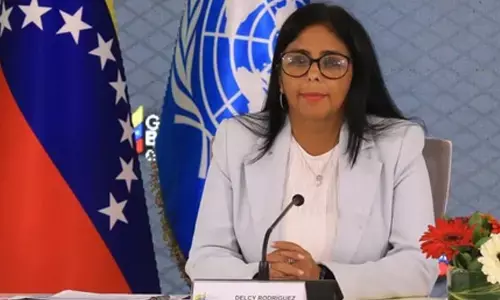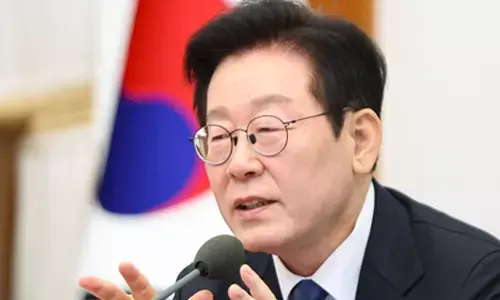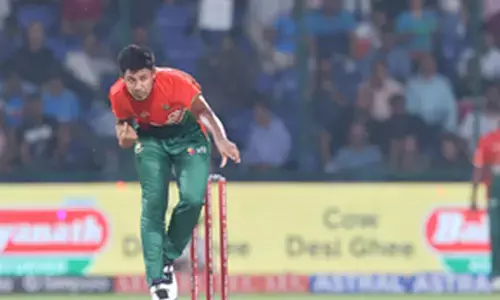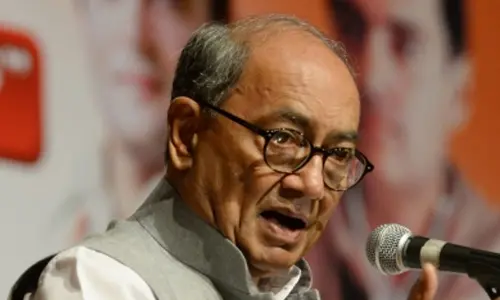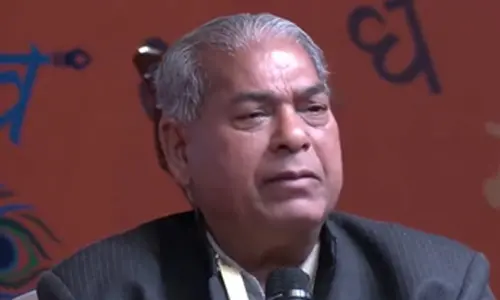Vijayawada: Compulsory education to girls will end child marriage
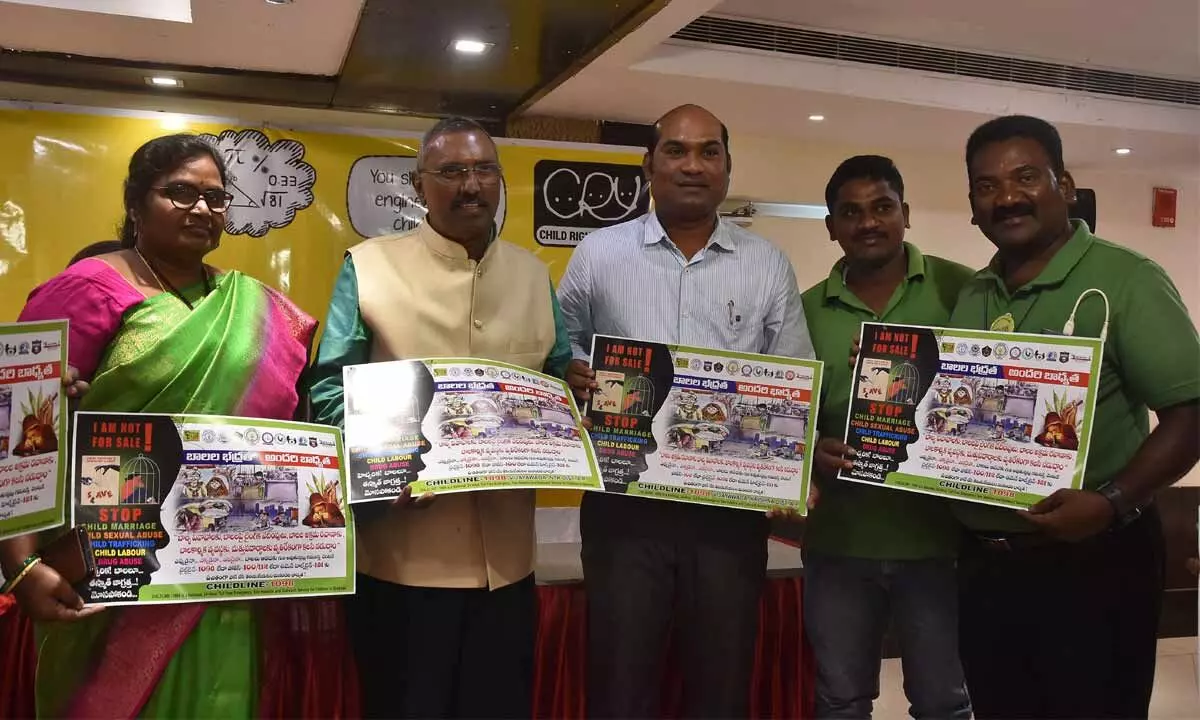
Press Academy Chairman Kommineni Srinivasa Rao and CRY members unveiling posters at a programme in Vijayawada on Wednesday
CRY study reveals that 52% of people still consider child marriage as an important custom
Vijayawada (NTR District): 'Child marriage is still regarded as an important custom by 52% parents and parents-in-law in Andhra Pradesh. Only 22% of parents and over half of the respondents and 54% of child brides/grooms in the State are aware of the negative consequences of child marriage,' revealed a study by Child Right and You (CRY).
CRY organised day-long consultation on addressing child marriage in Andhra Pradesh here on Wednesday. Press Academy Chairman Kommineni Srinivasa Rao, CRY General Manager Peter Suneel, Andhra Pradesh State Commission for Protection of Child Rights (APSCPCR) Dr Rajendra Prasad, Adi Lakshmi, Badugu Chennaiah, other NGOs and teachers participated in the consultation programme.
During the meeting, they revealed the findings of CRY child marriage study in the State. Peter Suneel said that child marriage tends to have an inter-generational impact on education, health and nutrition of adolescent girls and their children, as well as perpetuates the cycle of poverty. He further informed that limited educational opportunities also tend to compromise on girls' ability to contribute to the household income and make them vulnerable to domestic violence and engaging in an insecure informal work sector. He reminded that according to National Family Health Survey (NFHS), nearly one third of women (29.3%) aged 20-24 years are married before reaching 18 years age in Andhra Pradesh, which is higher than the all India average of 23.3%.
Peter Suneel informed that the practice of child marriage was first legally prohibited in 1929. As per the 1929 Act, marriage of girls aged below 14 years and boys aged below 18 years is prohibited, he added.
The CRY General Manager informed that the 1929 Act was amended in 1978 to increase the minimum age to 18 years for females and 21 years for men. He asserted that public awareness and education is needed to prevent child marriages. "On the basis of experience of working with children and marginalised communities, CRY strongly believes that legislative changes to increase the minimum age of marriage for girls will not be able to resolve existing problems. Addressing the root causes that perpetuate this harmful practice of child marriage would be a more sustainable solution to ending the practice. These include ensuring twelve years of free and compulsory quality education as legal right up to the age of 18 years. Girls empowered with education are better able to make informed decisions regarding their marriages as well as
participate in decision making within their families and society," he added.








